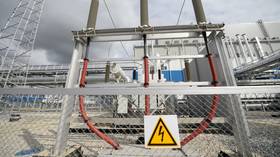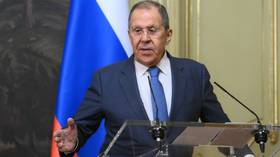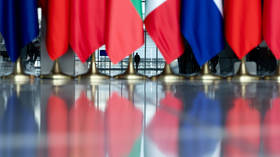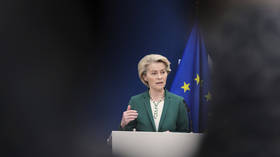Russia sanctions aren’t working – EU state’s foreign minister
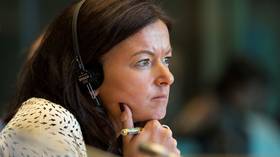
EU sanctions on Moscow have failed to cause any significant damage to the Russian economy and have instead put member states in a difficult position, Slovenian Foreign Minister Tanja Fajon told the German RND news outlet on Wednesday.
Тhere are currently no signs that the Ukraine conflict will be resolved with a “just peace” anytime soon, the minister said, claiming that the ongoing hostilities pose a threat not only to Ukrainian civilians and infrastructure, but also to neighboring EU countries and their economies.
Fajon called for more effective sanctions on Moscow, noting that current measures “do not seem to make us see [Russian President Vladimir] Putin suffer.” Instead, they are forcing EU states to make “great efforts” to replace Russian products.
Kiev has repeatedly complained about “weak” EU sanctions on Moscow. The head of the sanctions department of Ukraine’s National Agency on Corruption Prevention, Agiya Zagrebelskaya, said earlier this week that Brussels may not be capable of tightening its restrictions on Russia any further.
EU lawmakers have been debating a 13th round of anti-Russia sanctions with plans to publish them on the second anniversary of the Ukraine conflict later this month. The new set of restrictions is said to target some 200 entities and individuals but will reportedly not feature any “big names” or include any new import bans. Poland and the Baltic nations have been calling for a ban on imports of Russian aluminum and liquefied natural gas.
The European Commission is hoping to “cause minimal debate” among member states and pass the package as quickly as possible, according to the German Press Agency (dpa).
Moscow has repeatedly slammed Western sanctions imposed on various sectors of its economy and has called the freezing of its assets in the EU and the US “illegal.”
Nevertheless, Russian President Vladimir Putin has insisted that the national economy remains in good shape and continues to expand. Russian Prime Minister Mikhail Mishustin also noted last week that the country’s economy has been outperforming its European peers as its GDP is projected to grow by as much as 4% this year.
The IMF has also significantly raised its growth forecast for the Russian economy in 2024. According to its latest estimates published last month, Russian GDP is expected to grow by 2.6% this year, a sharp increase from its October forecast of a 1.1% gain.





